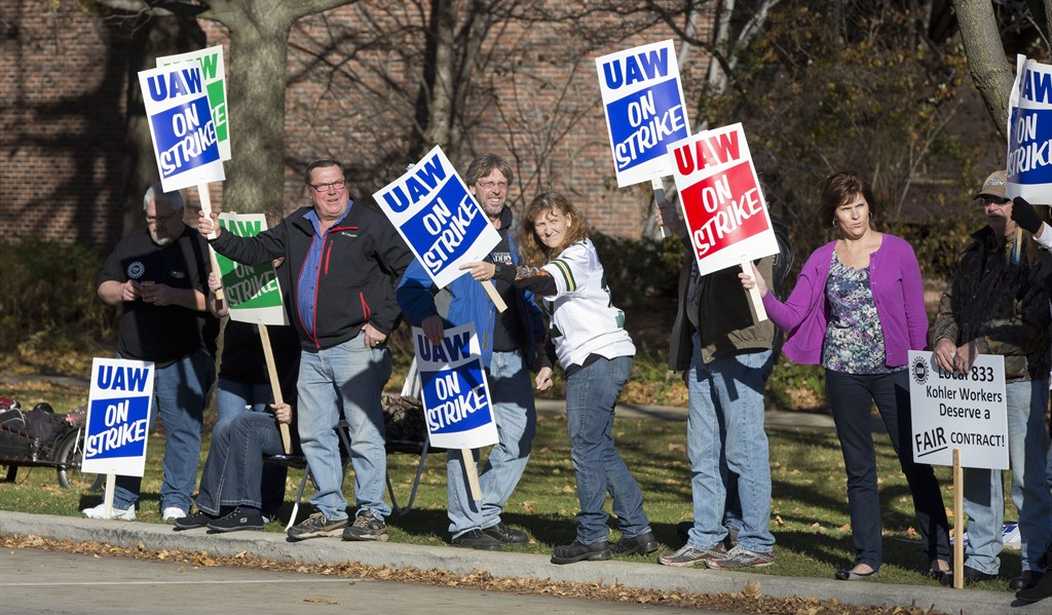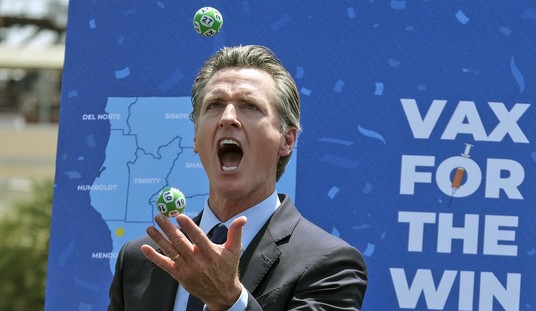The United Auto Workers and Ford Motor Company have reached a tentative agreement to end the UAW work stoppage against Ford. The deal may also serve as a template for GM and Stellantis to settle with their workers.
If the deal is accepted by the UAW executive council and ratified by the rank and file, the strike will be over. If so, it will make union president Shawn Fain look like the idiot he is.
Fain was issuing blood-curdling threats to the automakers to give them what they wanted or see a historic work stoppage. Fain demanded a 32-hour workweek with 40 hours of pay, a 46% pay hike, and a restoration of pay raises given back during the downturn of 2008.
What they’re getting is a 25% wage increase, the right to strike over plant closures, and some improvements in health and pension benefits. It’s definitely not a 40% wage increase, nor are there any cuts to the workweek, nor word on restoring pay that was cut made during the Great Recession of 2008.
If the workers at Ford and other U.S. automakers had gotten everything they asked for, workers could have earned about $100 an hour. That would make U.S. automakers extremely non-competitive with foreign automakers and American EV company Tesla.
The companies are investing billions in a transition to battery-powered vehicles, which they say makes it harder for them to pay substantially higher wages. Last week, Ford’s executive chair, William C. Ford Jr., said the union’s demands risked damaging the ability of Detroit automakers to compete against nonunion companies like Tesla and foreign rivals.
“Toyota, Honda, Tesla and the others are loving the strike, because they know the longer it goes on, the better it is for them,” he said. “They will win, and all of us will lose.”
The UAW makes a different case: that success in its contract battle with the Big Three will give it momentum to organize autoworkers at other companies as well.
Tesla is the next big UAW target, and it definitely won’t be an easy mark. Elon Musk is playing the angles to keep the union at bay, including trying to keep Tesla t-shirts as part of the standard uniform.
The NLRB last year said the policy requiring workers at factories in California and Nevada to wear black shirts with Tesla logos was illegal because there were no “special circumstances” warranting restrictions on union attire.
Tesla adopted the policy in 2017 amid a campaign by the UAW to organize production workers. The union has accused Tesla of various unlawful tactics to stifle organizing, which the company has denied.
During oral arguments on Wednesday, the 5th Circuit judges suggested that Tesla may not have been required to prove special circumstances justifying its uniform policy, such as public image or safety concerns, because it only prohibited t-shirts and not all union insignia.
As long as the National Labor Relations Board (NLRB) is in the Democrats’ hands, Tesla doesn’t have much of a chance to remain non-union.
The other two auto companies don’t have to accept the Ford settlement. But the companies are losing $5 billion every ten days, so GM and Stellantis are likely to swallow hard and take the deal.










Join the conversation as a VIP Member